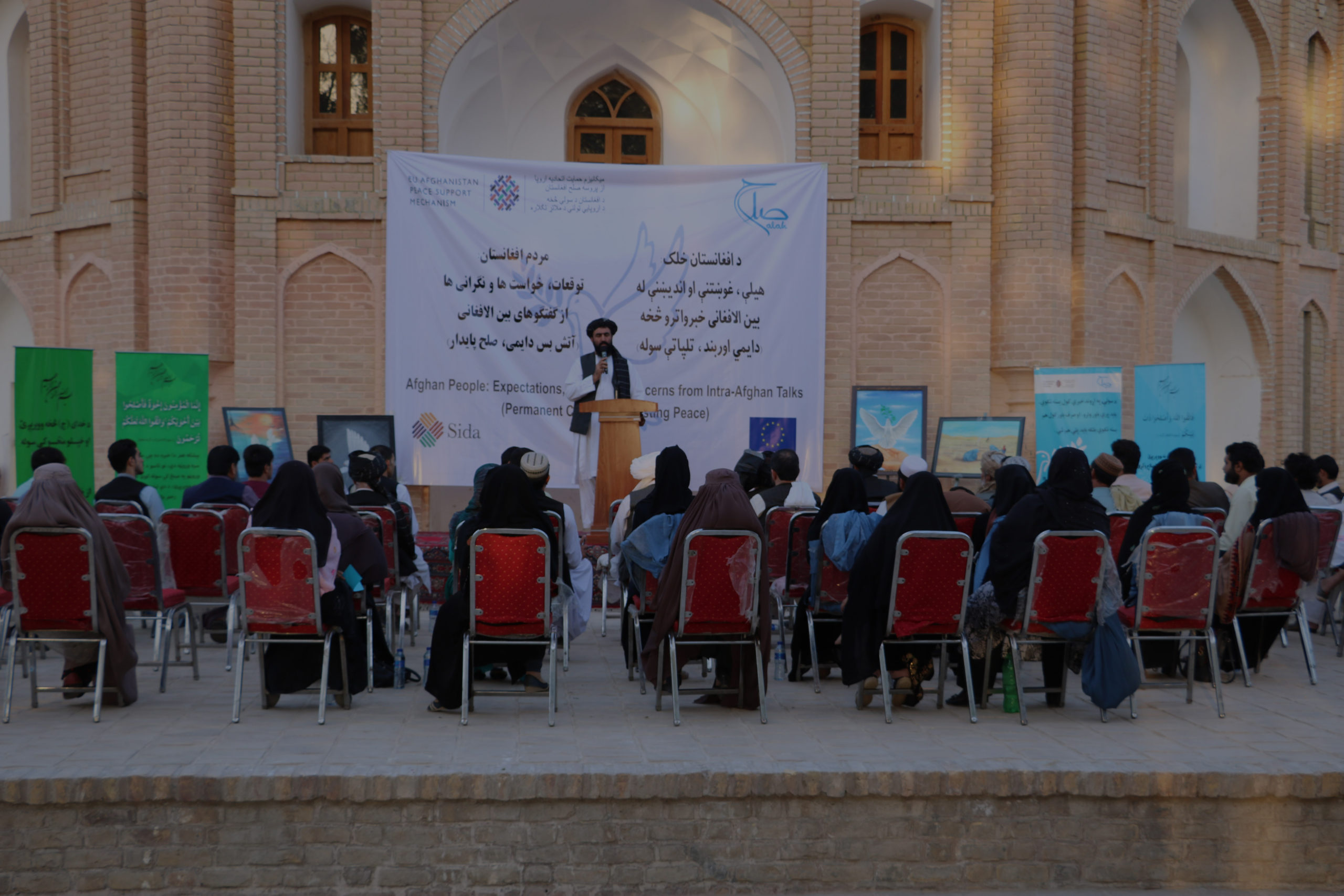The ownership of Afghan peace process and participation in it has been largely criticized not only because of the inadequate participation Afghan government in the peace process but also because people of Afghanistan have limited access to information regarding the decisions. Social peace and inclusion of people in the peace process is important for sustainability and durability of the process. The space should be provided in the peace process, where all Afghans including civil society, women groups and youth represent the diverse voices and play an important role in the process. Recognizing the need for intervention, Salah consortium proposed this project to strengthen people’s voices in Afghan peace process and peace building initiatives. The project was funded by the Swedish International Development Corporation (SIDA) and implemented by SALAH consortium in seven regional provinces of the country including Kandahar, Herat, Paktiya, Balkh, Bamyan, Nangarhar, and Kunduz.
OBJECTIVES:
The project was implemented with two main objectives:
Objective 1: Local voices are increasingly mainstreamed in Afghanistan’s national peace process
Objective 2: Regular exchange of thoughts and ideas between the national and local level actors on issues related to peace.
ACTIVITIES:
The project was implemented through two closely related activities; 1) a series of 21 townhall symposiums conducted across Afghanistan to promote the discussion on issues relevant to Afghanistan’s fast-evolving peace processes; 2) capacity building of the members of civil society and Media Peace Secretariat (created by SALAH for peace building) to enable the secretariat to serve as a sustainable structure to organize peace dialogues at the national and local level during and beyond the project period.
The townhall symposiums brought together peace builders, women, men, youth, leaders and activists at the regional centres and provided them with a platform to share their thoughts and experiences related to peace building. The experiences shared in these symposiums were recorded in policy briefs which were shared with the relevant stakeholders at the national level. TLO conducted these town hall symposiums in three regions including Nangarhar, Paktia and Kunduz.
CSOs and Media Peace Secretariat served three main functions: 1) Dissemination of local peace process inputs to stakeholders, especially the Afghan government at the national and international level 2) Dissemination of peace-related information to local populations, especially in cooperation with the Afghan government; and 3) Monitoring and accountability of promotion of national-level peace processes, if and when they become operational.
OUTCOMES
The townhalls sessions significantly increased and mainstreamed local voices in the peace process as it provided a platform for a considerable number of peacebuilders and common people to come together and discuss issues related to peace. During the project period, it was identified that the participants who participated in townhalls meetings showed complete acceptance of the importance of Afghan peace process and national peace agreement. All participants also acknowledged the importance of raising their voices in a systematic manner. This acceptance among people was a positive outcome of the project that aimed to increase local voices in the Afghan Peace Process and enhance exchange between national and local level actors.
Apart from facilitating the townhalls meetings throughout Afghanistan, a CSO and Media Peace Secretariat was also established on 16th of December 2020 to promote peace through dissemination of peace promotional messages at all levels. The secretariat also conducted advocacy sessions at the local and national levels for inclusive and sustainable peace and monitoring of peace building initiatives across the country. The National Peace Secretariat consists of civil society representatives from 34 provinces with provincial offices in seven regional centres, present across the country and with over 25 representatives in each regional centre. It is a sustainable mechanism that is striving to build peace and increase local voices in the peace process.




